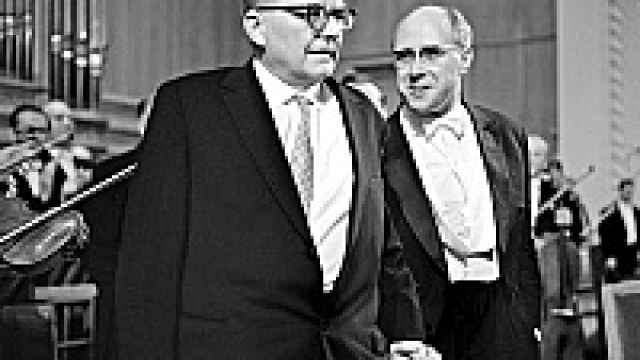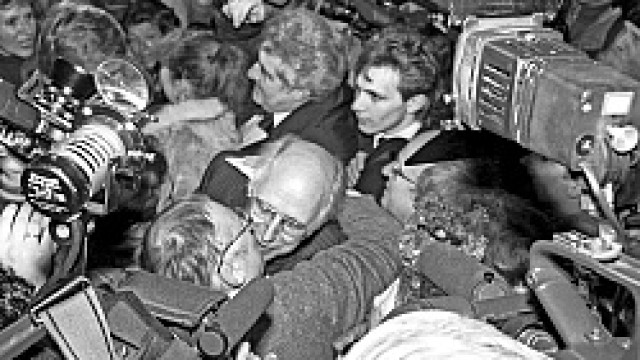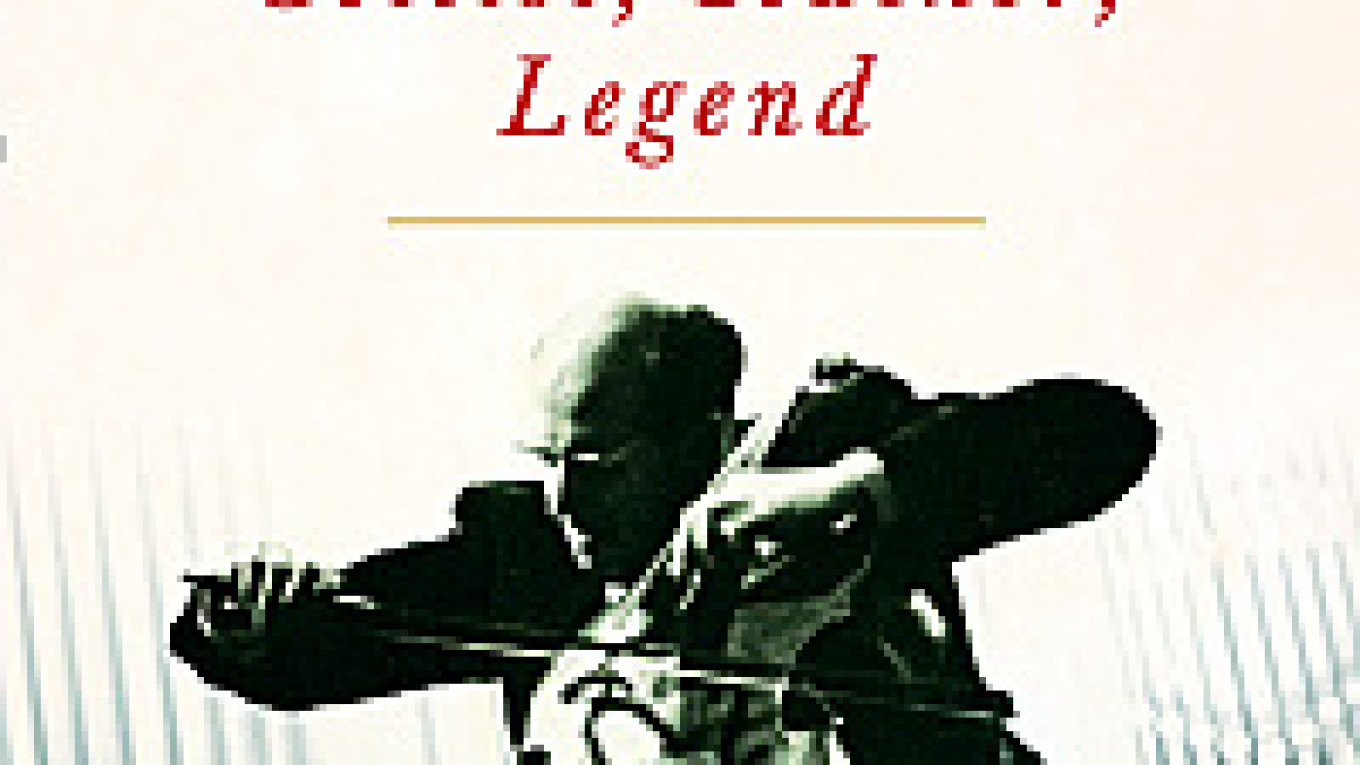The pages Wilson devotes to Rostropovich's steadfastness and growing despair in the face of governmental pressure are among the most gripping of her book, as one would expect. Restricted in his travel and performing opportunities, and ostracized by many fellow musicians, the once lionized musician wrote directly to Leonid Brezhnev for permission for him and his family to leave the country for two years, which was granted. Traveling ahead of his family with a suitcase, two cellos and his Newfoundland dog, he experienced a final indignity at the airport when customs officials wouldn't let him take his medals. Sixteen years elapsed before he returned to Russia, and when he did the Soviet regime was no more.
This book, which appeared shortly before Rostropovich's death, deals with his Soviet career, and Elizabeth Wilson, who is perhaps best known for her biography of Dmitry Shostakovich, as well as one of the cellist Jacqueline du Pré, is uniquely qualified to write it. She actually studied cello with Rostropovich at the Moscow Conservatory from 1964 to 1971 and, in addition, was the daughter of Sir Duncan Wilson, Britain's ambassador to Russia when Rostropovich's situation became acute. The book deals extensively with Rostropovich's work at the Conservatory, where he joined the faculty soon after completing his post-graduate work there in 1948, at the age of 21, and remained until his departure from Russia. Wilson's fellow students Natalia Shakhovskaya, Alexander Knaifel, Misha Maisky, Natalia Gutman and Ivan Monighetti are a few of his illustrious protégés.
 Itar-Tass Rostropovich (right) honors Shostakovich at a gala for the composer in 1966. | |
For a musician of such prodigious gifts and boundless energy, the limitations of a single instrument were understandably confining. He responded both by expanding the possibilities the cello offered as an outlet for him and by broadening his own musical pursuits. He worked determinedly to win greater acceptance of the cello. Irritated that the instrument was excluded from the first Tchaikovsky Competition in 1958, he ensured that a new division devoted to cello was in place for the Tchaikovsky's second installment four years later. Above all, he was a catalyst for new compositions, giving the world premieres of more than 200 works.
Early on he tried his hand at composing, though he quickly concluded that his efforts were outclassed by those of his idols, Shostakovich and Sergei Prokofiev. An accomplished pianist, he often accompanied his wife, the soprano Galina Vishnevskaya, in recital, and he regularly illustrated points in class on the piano, not the cello. His m?tier became conducting, but primarily after he left Russia. "I have always dreamed of a cello with one hundred strings," he once wrote. "I have envied conductors who inspire orchestral musicians in an artistic vision for which no single instrument possess sufficient means of expression." His father, who was also a cellist but died when Mstislav was only 15, had urged his son to become an instrumentalist before turning to conducting so as to win the respect of his players. The younger Rostropovich made his debut as a conductor only in 1962, later conducting at the Bolshoi Theater until his work there was unceremoniously curtailed.
Wilson is generous in allowing her fellow students to relate their own experiences with the maestro. But the cumulative result is repetitiveness, as they spin yet more variations on the theme of what a fount of inspiration he was or relate further anecdotes about the demands he placed on them. A fair amount of the book is for the cello aficionado, and portions even seem pitched to Wilson's own circle. But the author's discussions of interpretive issues relating to individual works are often illuminating, and a comprehensive index makes them readily accessible as a reference source to the student or serious amateur.
 Itar-Tass Rostropovich returns to Moscow in 1990. | |
Rostropovich was nothing if not strong willed, and had zero tolerance for incompetence. Regarding an early tour, an official chided him for directly informing the American impresario Sol Hurok what he would play, rather than going through the Culture Ministry. Accordingly, Rostropovich phoned the ministry to tell them what works he planned to program, information that was duly passed on to Hurok: Bach's Suite No. 7 in F minor, the Mozart Fourth Cello Sonata, Scriabin's Cello Sonata -- all nonexistent, of course. More serious was his revulsion at the official attacks on Prokofiev, Shostakovich and others in 1948, which must have been a formative event in shaping his attitude toward the regime. He later asserted that, unlike many other musicians, he never expressed the slightest doubt about these composers, and they responded by writing music for him. Wilson gives a real feeling for this indomitable personality. There is a reference to Vishnevskaya singing at the Bolshoi in a new production of Tchaikovsky's "Francesca da Rimini" -- it was Sergei Rachmaninoff's "Francesca" that she sang -- but otherwise the book is thoroughly researched and fluently written.
George Loomis writes about classical music from Moscow and New York.
A Message from The Moscow Times:
Dear readers,
We are facing unprecedented challenges. Russia's Prosecutor General's Office has designated The Moscow Times as an "undesirable" organization, criminalizing our work and putting our staff at risk of prosecution. This follows our earlier unjust labeling as a "foreign agent."
These actions are direct attempts to silence independent journalism in Russia. The authorities claim our work "discredits the decisions of the Russian leadership." We see things differently: we strive to provide accurate, unbiased reporting on Russia.
We, the journalists of The Moscow Times, refuse to be silenced. But to continue our work, we need your help.
Your support, no matter how small, makes a world of difference. If you can, please support us monthly starting from just $2. It's quick to set up, and every contribution makes a significant impact.
By supporting The Moscow Times, you're defending open, independent journalism in the face of repression. Thank you for standing with us.
Remind me later.


